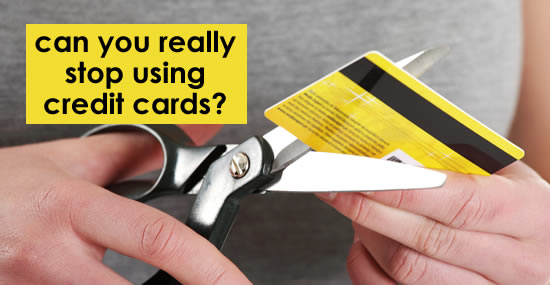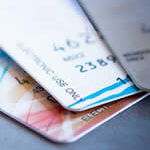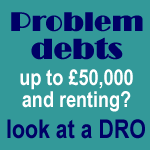
If you are serious about paying off your debt, you have to stop using it.
Until your debt stops increasing, you can’t make a realistic plan to clear your current debt. Trying to repay a credit card or catalogue when you are still using it is like trying to run a bath when you haven’t put the plug in…
Many people say they could if they wanted to, but it’s just convenient. Are you sure? There is only one way to find out!
This is becoming more urgent for some people who are being told by their credit card they must increase their payments or stop using the card – see this Halifax/Lloyds case.
Common excuses for not giving it a go
Do you recognise any of these?
- “I’m only using credit cards as they save having to think about how much money is in my bank account at every point in the month”
- “I use them because of the extra legal protection”
- “I get cash back (or Nectar points or air miles) on my credit card purchases”
- “I’m managing the minimum payments so it’s not really a problem”.
Unless your debts are clearly dropping each month, you may be fooling yourself with these excuses.
0.5% or 1% cash back or loyalty card points are tiny compared to the interest you are paying every month. Great for people who clear their balances in full every month, but not if you don’t.
Section 75 legal protection only applies if you buy something large. Not for everyday spending such as groceries and petrol.
If you are only paying the minimums and still spending on the card, it will take 10, 15 or more years to clear the extra debt you are adding. That pair of shoes will be in the bin long before they are paid for.
How to manage without the cards
You have basically two options: use cash or use your debit card.
Using cash means you don’t have to track what is in your bank account every day, only when you withdraw money. And it may well have an extra psychological advantage that you find yourself more reluctant to hand over hard cash for something than flashing the plastic.
If you decide to use your debit card, then keep an eye on your account balance, especially if you have a joint account. Be especially careful when you use contactless payments. Quick and convenient – but it can feel like you aren’t spending “real money” at all.
There are some good apps that help you track your spending, Starling’s banking app is very good. If you have several accounts and cards, have a look at Emma which can give you a good overview.
Three tips to make this easier
- get a bills account. When your expenses are spread through the month and/or your income doesn’t all come at once it can be confusing to see how much you can spend. So get a new account (possibly a joint account?) just for the bills and regular payments and fund it when you get paid. Then what’s left in your account is what you have to last the month.
- cut back on monthly subscriptions. Some you may not need at all anymore, others you may decide you can manage without.
- remove credit cards from online accounts Take your credit card off Amazon, PayPal, Google Pay, Apple Wallet… whatever your online weakness is.
What to do with the credit cards
Cut them up? That’s a serious suggestion. If you have several cards, cutting them all up apart from one (which ideally would have both some spare credit on it and a comparatively low-interest rate) is a good idea.
You can always ask the lender to send you a new card if you change your mind.
Less dramatically, you could leave them at home or give them to your mum to hold.
Or freeze the card in a block of ice. This won’t damage the card (unless you try to defrost it in the microwave!) but may be sufficient of a deterrent, giving you that extra dollop of willpower not to spend.
At the end of the month – how did it go?
“I failed – I just had to use the card once”
Don’t give up! There may have been a very good reason… or you may be very cross with yourself. But carry on trying.
“Not too bad, just a bit inconvenient”
Did you try the three tips in this article? If not, give them a go. If you managed a month, then every small improvement in your finances will make things easier.
Also read up about Snowballing. That may work well for you – it clears your debts as fast as possible and leaves you with a great credit rating.
“Not even close”
If you couldn’t manage it and your debt has gone up a lot during the month, then it’s probably time to take some debt advice. The longer you wait, the harder the solutions are likely to be.



Leave a Reply